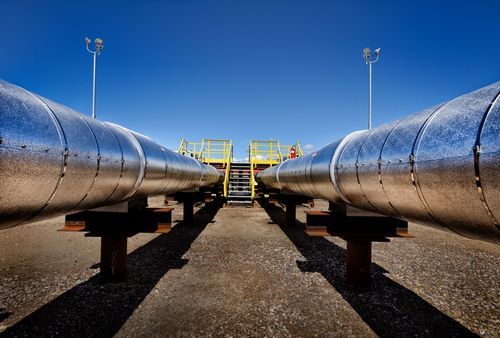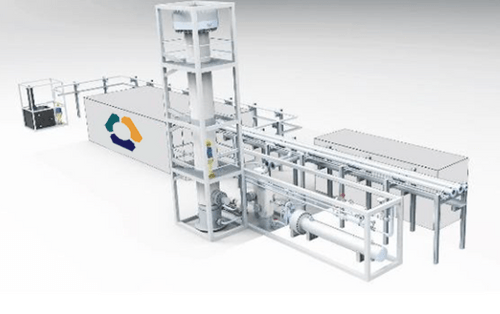Calgary-based Tidewater Renewables, a producer of low-carbon fuels, has raised its total cost estimate by 10% for a renewable diesel and hydrogen plant that’s under construction in British Columbia, Canada.
The estimated capital spend for the 3,000 bbl/d project in Prince George is now CAD 260m, compared to CAD 235m previously, largely due to the lack of small components in North America, CEO Joel MacLoed said on the company’s November 10 earnings call.
While large items for construction are already on site or en route, the company has had to order a custom mill run for smaller components that are typically available off the shelf.
“What’s hit us here is these exotic components, and North America is essentially sold out on a lot of the small components: valves, fittings,” MacLoed said.
“So we’ve had to set up a custom mill run. And it burns us to see that some of these very small components are actually resulting in the cost increase,” MacLoed added, noting that some of the cost increases were 5x – 10x over the usual price for small items made from specialty metals.
Tidewater is also building two other projects: a nearby fluid catalytic cracking co-processing facility which is expected to be fully commissioned next year; and an RNG facility near High River, Alberta, for which the company has entered into offtake and feedstock agreements with FortisBC and Rimrock Cattle Company, respectively.
Due to the inflationary pressures, the company’s risk tolerance has “moved down” with respect to taking on additional large-scale projects.
“It’s unlikely you’ll see us progress three projects at a time,” MacLoed said. “We’re going to be very selective in our projects.”
Still on track
In spite of the cost hikes, the renewable diesel and hydrogen facility is still projected to come online in 1Q23 with production increasing through 2Q23.
Additionally, the economics of the project remain largely unchanged, due to high renewable diesel prices and the availability of government incentives, the company said.
The company expects the incremental capital costs for the project to be partially offset by the increased value of the British Columbia Low Carbon Fuel Standard credits issued under the Renewable Diesel Project Part 3 Agreement with the government of British Columbia as compared to budget.
Tidewater also noted in the press release that the renewable diesel and hydrogen complex could generate an incremental CAD $30m of run-rate EBITDA from Clean Fuel Regulation credits, assuming pricing of CAD $95 -100 per credit.
“The government support is extremely helpful,” MacLoed said.
Also during the quarter the company closed on a $150m five-year senior secured second lien credit facility with an affiliate of Alberta Investment Management Corporation (AIMCo).
The AIMCo facility initially bears interest of 6.50% but is subject to scheduled escalations in year four and year five as well as inflation-based adjustments. In conjunction with the AIMCo facility, Tidewater Renewables issued 3.375 million warrants to AIMCo.






